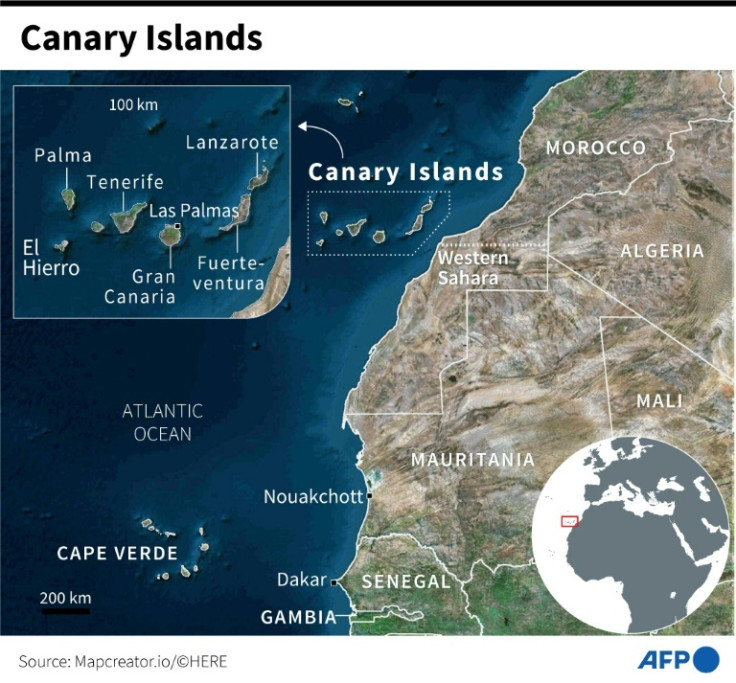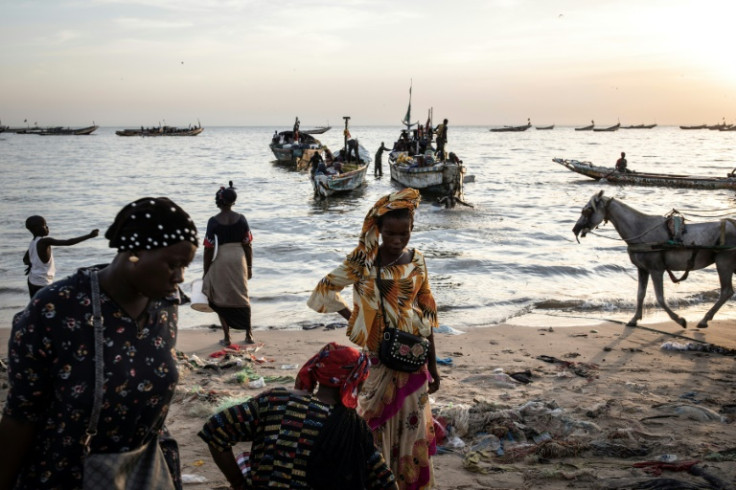Rescuers Resume Search For Migrant Boats Off Canary Isles

Spain's coastguard resumed the search for three migrant boats reported lost off the Canary Islands after suspending an aerial search earlier in the day due to bad weather.
In recent days, rescuers have been looking for hundreds of migrants on board three boats that left Senegal in late June and were reported lost at sea by Caminando Fronteras, a Spanish NGO that helps migrant vessels in distress.
"The plane left about half an hour ago but so far we have no further information," a coastguard spokeswoman told AFP around 1600 GMT.
Earlier she said bad weather conditions meant it was not possible "to conduct a search by plane".
Caminando Fronteras founder Helena Maleno said the biggest boat left the southern Senegalese fishing town of Kafountine on June 27 carrying some 200 people, "among them many minors".
Kafountine lies at least 1,700 kilometres (more than 1,000 miles) south of the Canaries.
The other two boats, one carrying 50-60 people and the other 65 people, had left from Mbour, a town some 75 kilometres (50 miles) south of the capital Dakar, she said.
During their searches on Monday, the coastguard rescued 78 sub-Saharan migrants from another boat in distress but it was not one of the three that had departed from Senegal, the NGO said.
In a statement late on Tuesday, Senegal's foreign ministry denied "reports on social media about at least 300 Senegalese (migrants) had gone missing at sea".
"Checks that were carried out show that this information is totally unfounded," it said.
It also said that "between 28 June and 9 July, 260 Senegalese in distress were rescued in Moroccan territorial waters", without saying if there was any connection with the boats reported missing by Caminando Fronteras.
In a statement on Wednesday, the NGO said it had been able to confirm that the rescues mentioned by Dakar corresponded "to boats that had also left the Senegalese coast but were not those carrying the 300 missing people".
The Spanish islands have long been a draw for migrants seeking a better life in Europe, with many boats setting off from the coastline of Morocco, Western Sahara, Mauritania and Senegal.
But the Atlantic route to the Canaries is particularly dangerous due to the strong currents, with migrants travelling in overloaded wooden boats known as pirogues that are often unseaworthy, and without enough drinking water.
Atlantic crossings began surging in late 2019 after increased patrols along Europe's southern coast dramatically reduced Mediterranean crossings.
In the first six months of 2023, 7,213 migrants reached the Canary Islands by boat, interior ministry figures show.

© Copyright AFP 2025. All rights reserved.





















